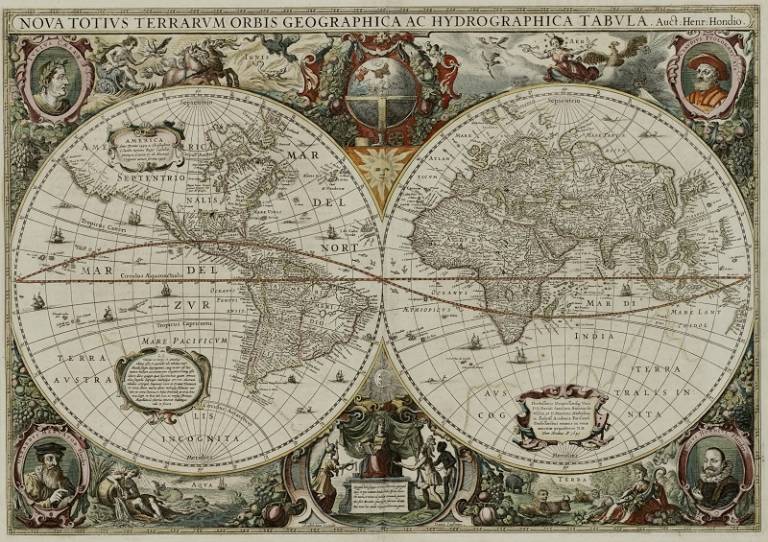EME HYBRID: Translating Ancient Greek Drama (1600-1800)
24 June 2022, 10:00 am–7:00 pm

Registration is now open for this conference exploring the reception of ancient Greek drama in translation practices and theories between 1600 and 1800, in Europe and the colonial Americas.
This event is free.
Event Information
Open to
- All
Availability
- Yes
Cost
- Free
Organiser
-
Giovanna Di Martino
Location
-
IAS Common GroundG11, ground floor, South WingUCL, Gower StreetLondonWC1E 6BTUnited Kingdom
Scientific Committee: Malika Bastin-Hammou (Grenoble), Giovanna Di Martino (UCL), Cécile Dudouyt (Paris 13), Fiona Macintosh (Oxford).
Keynote Speakers: Professor Sarah Knight (Leicester) and Prof. Sylvie Mougin (Université de Tours)
Support from: The Leventis Foundation, Université Sorbonne Paris Nord, the Archive of Performances of Greek and Roman Drama (Oxford), UCL Centre for Early Modern Exchanges, and the University of Grenoble.
Early modern translation theories and practices need to be discussed in relation both to ancient theory and performance, and to early modern theatre theories and practices. This complex nexus requires a cross-cultural, multilingual and collective effort. In the three previous Oxford-Paris conferences, it has become amply evident that it is imperative to distinguish between ‘translation’ and ‘translating’. Whereas translation should be understood as the production of a full-length target text, often (but not necessarily) the work of a scholar, acts of ‘translating’ can be found in texts that are not necessarily conceived of as ‘translations’ nor as explicitly drawing on ancient Greek material. ‘Translating’, in this sense, represents the intertextual reworking of one, or the fragmentary combination of different, ancient Greek and early modern sources in a dynamic and creative way, typically, though not exclusively, by a playwright or poet.
Both ‘translation’ and ‘translating’ of ancient Greek drama in this period should be understood as acts of interlinguistic and intersemiotic transactions which, in addition to involving two linguistic systems, also encompass a reassessment of both the source’s and target’s contextual and cultural meanings as well as a recodification of the source’s cultural and theatrical conventions. The implications of recodification are brought to the fore when these texts are explored through the lens of their dramaturgical potential: i.e., as translations of dramatic texts and thus (if only ideally) conceived for the stage, but also as themselves dramaturgical acts of understanding and assembling meanings, ancient and modern alike, in a mutual relationship of influence.
Registration is now open at https://translating-ancient-greek-drama.eventbrite.co.uk Please make sure you choose the correct ticket: either 'in-person attendance' at UCL or 'online attendance'
Programme
10.00am-7pm BST, Friday 24th June, IAS Common Ground, G11, ground floor, South Wing, UCL, Gower Street, London, WC1E 6BT, United Kingdom
09.30-10.15 Registration and Coffee
10.15-10.30 Welcome from Giovanna Di Martino (UCL & APGRD) and Cécile Dudouyt (Paris 13)
10.30-12.00: The 17th Century and Greek Tragedy - Chair: Giovanna Di Martino (UCL)
- Sarah Knight (Leicester): Ghost Kings and Furies
- Giulia Fiore (Bologna) & Giovanna Casali (Padova): The Seventeenth-Century French Querelle(s) on Imitating Greek drama. Two Case Studies: Oedipus and Alcestis
- Angelica Vedelago (Independent Researcher, on zoom): ‘Translating’ Sophocles in the Restoration: The ‘Athenian Harp’ resounding in Dryden and Lee’s Oedipus (1679)
12.05-1.35pm: The 17th Century and Aristophanes - Chair: Lucy Nicholas (Warburg)
- Malika Bastin-Hammou (Grenoble, on zoom): Who's afraid of Praxagora? Translating Aristophanes' Assemblywomen in Early Modern Europe: Tanneguy Le Fèvre's letter to Élie Bouhereau (1665)
- Francesco Morosi (Pisa): Poor as a Scholar: Thomas Randolph and Penia in Aristophanes’ Wealth
- Tom Harrison (Queen's University, Belfast): ‘Speak, sir, some Greek, if you can’: Jonson, Aristophanes, and The Devil Is an Ass
1.35-2.30pm Lunch
2.30-4.00pm: The 18th Century and Greek Tragedy I - Chair: Cécile Dudouyt (Paris 13)
- Marco Duranti (Verona): ‘The Great Art of Euripides’: The First English Translation of Iphigenia Taurica (1749)
- Josef Förster (The Centre for Classical Studies at the Institute of Philosophy, CAS): Translating Ancient Greek Drama in the Czech Lands
- Francisco Barrenechea (University of Maryland, College Park): Savage Antiquities: Vicente García de la Huerta and the Discussions of Greek Tragedy in the 18th-century Spanish Empire
4.00-4.15pm Coffee/Tea Break
4.15-6.00pm The 18th Century and Greek Tragedy II and Plenary - Chair: Fiona Macintosh (Oxford)
Sylvie Mougin (Université de Tours): Traduire les Grecs ou les Latins ? Philhellénisme triomphant et résistance du modèle tragique latin sur la scène européenne du XVIIIe siècle
Giovanna Di Martino (UCL & APGRD), Cécile Dudouyt (Paris 13), Estelle Baudou (APGRD, Dramaturg): New Translational Paradigms and the ‘Rediscovery’ of Aeschylus. Prometheus Bound in Performance
6-7pm Drinks Reception
Please address any questions to translatinggreektragedy@gmail.com
Call for Papers (now closed)
This fourth conference in the series invites submissions which may include, but should not be limited to, the following topics:
- The presence of ‘translating’ ancient Greek drama in theatres and other forms of performance, whether courtly, commercial, academic, or private
- The translators’ own definition of their work and the circulation of their texts
- Translation and translating of ancient Greek drama and their contribution to, place within, the scholarly world
- Translation theories and their application to translation practices in performance
- Translation and translating in the construction or subversion of national dramatic repertoires and/or social practices
- Translation and translating in the superimposition/challenge/resignification of the cultural meanings of the source and target dramatic practices and local forms of theatre
- The dramaturgical potential of early modern translation and translating of ancient Greek drama, which can be presented in the form of demonstration-performance papers
250-word abstract and a short biography were requested by 8th April. Papers should be 20 minutes’ long; demonstration-performance papers can take up to 40 minutes.
 Close
Close

